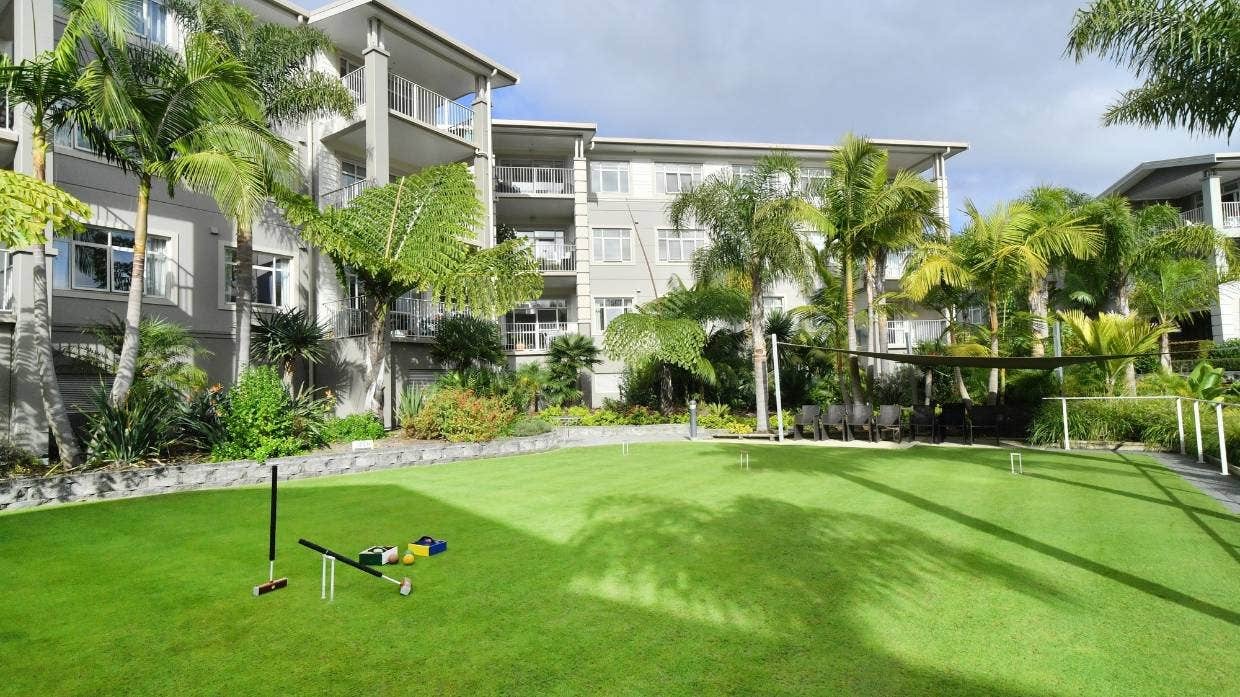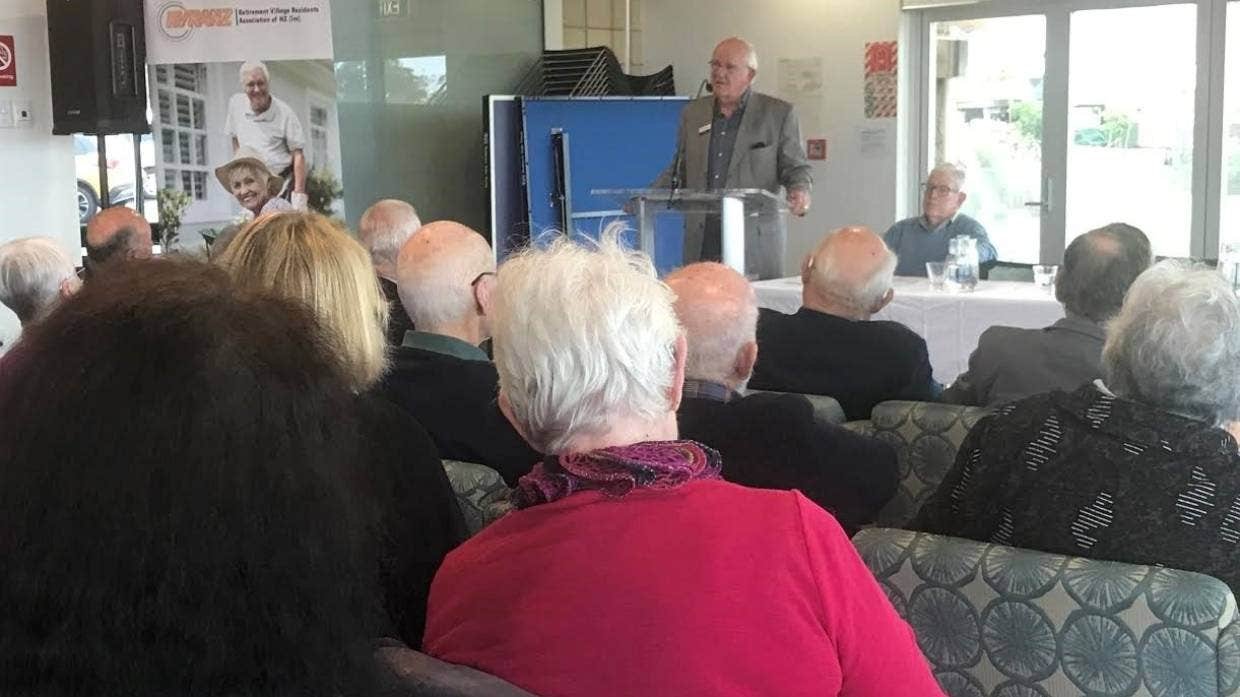Waiting lists at retirement villages, as Covid anxiety drives desire for security
Written By Kevin Norquay for Stuff
Polly Milnes once sailed the high seas with her husband; now she is taking shelter from the Covid storm in a Canterbury retirement village.
Retirement village newcomer Polly Milnes at the helm in her sailing days.
Milnes, aged in her roaring seventies, left her “very nice” three-bedroom Halswell home in suburban Christchurch last week, to move into Ryman Charles Upham in Rangiora.
Her bid to find security in a pandemic world, is part of a trend since Covid-19 loomed.
Pensioners have been heading for the security of retirement villages since 2020, Retirement Villages Association executive director John Collyns tells Stuff.
“We found that during, and immediately after the lockdown, the number of inquiries about moving to a retirement village dramatically shot up,” he says.
“It was not only from intending residents, but also from their kids, who were worried about their parents living in the family home during a time of lockdown, and seeing the problem of mental health, which older people in the community suffered.”
As Omicron looms the same principles of concern and safety remain, two years after the initial outbreak.
Covid prompted Milnes to take the step years earlier than intended, she says.
Pensioners are keen to get into retirement villages, with Covid security one factor.
“I moved into this nice bungalow, and I had lovely neighbours and everything and everything was all hunky-dory until we got Covid,” she says.
“My step-son and his partner are over at Akaroa and when we got locked down I was in nobody's bubble,” she says.
Polly Milnes has found her safe place in the pandemic.
“The neighbours are lovely. But they were in their own family bubbles. I found it very lonely. The more I thought about it, the more I thought to myself I’m going to have to rethink my life.
“I'm sure what I have done now would have happened eventually [but Covid] has made me rethink and just brought forward my actual original plans.”
And Milnes was far from alone in her rethink. She’s so far from alone that she had to wait eight months for a Charles Upham townhouse. Her friend Margaret found an assisted living apartment, more quickly.
“We moved for the same reason, feeling that we wanted to be in a caring community. Similar people under an umbrella of security, that's the main reason that I've moved,” Milnes says.
“I still have my independence, but there's somebody here if you need any help,” she says.
“Covid could get in here, who knows? But you're in a community, you're not battling or wallowing around on your own. You feel part of a team, an old team, but a team.”
After years sailing with her husband, then taking cruises, Milnes has now run aground in Rangiora, with Covid curtailing her wanderlust. Her last trip was a 75-day cruise, but she’s OK with where she’s found herself.
“Somebody is quoted as saying once you're in, it’s like being on holiday with your own furniture, and I can reinforce that.”
Retirement villages are distinct from rest home, which are more akin to hospitals for the elderly than homes.
In 2020 a Christchurch rest home was home to New Zealand's deadliest Covid-19 cluster, with 12 fatalities linked to the Rosewood rest home.
It was found to have breached its obligations including cleaning services and emergency provision of personal supplies.
As with the general public, retirement villages and their residents have had social issues during the pandemic, Collyns says.
Among those have been increased security to keep residents and the businesses safer, higher potential for loneliness, and the vexed issue of vaccinated vs unvaccinated.
“It is fair to say that there is a small number, we’re talking a very, very tiny number of residents who are unvaccinated,” Collyns says.
Retirement Villages Association of New Zealand executive director John Collyns at Olive Tree village in Palmerston North.
“It’s also clear that other residents who are vaccinated are very cautious about involving the unvaccinated residents in village activities.
“That certainly creates a bit of a challenge for operators to work out how that can involve unvaccinated people in the village.
“There are opportunities for unvaccinated residents to be involved, but it's a lot more complicated to do that. Our advice to residents is to get vaccinated.”
He felt the broader public were aware during the pandemic residents “were quite clearly being looked after, they had activities organised, they were socially distanced, and they were doing fun things”.
“We wanted to make sure that operators didn't lock the gates and behave in a way that was over-bearing and too protective, because they thought the residents needed to be protected.
“Just because a resident lives in a retirement village, they should not be worse off than if they lived in their own home in the community.”
With around 60 per cent of villages offering aged-care facilities, added precautions were crucial there, with Covid particularly tough on the older age groups.
Retirement Village Residents Association president Peter Carr, warns that there is no one-size-fits-all village, so the haste to feel secure should not over-ride other considerations.
“One of the things I like to say to people who are considering going into villages is do your homework,” Carr says, with employing a lawyer to look over the contracts a key part of that.
“You’ve got to be right about your decision. It’s very hard to claw back because you lose a lot of money when you change your mind.”
The Retirement Village Residents Association has several thousand members of the about 45,000 people living in retirement villages. Pictured is association president Peter Carr talking to members.
Carr, NZ National Fieldays Society board chairman, lives in a Cambridge retirement village, just 400m down the road from his last house.
His role is to give residents a voice, when dealing with retirement village operators.
Since the first lock down, some village operators erred too far on the side of caution, in the eyes of their residents.
“In some places, people felt they were locked up. They were never locked up in the physical sense, because you can't, but they were advised by some operators ‘please don't leave the land’.”
Under the traffic light system the degree of freedom is greater, he says, though there is still plenty of caution.
His village has a waiting list of around 30, with that the security that caution provides - again - one of the reasons pensioners are lining up.
“People are starting to think they're going to feel safer by being in villages. And I think they are, to be honest,” Carr says.
“[It’s a fact that] people in villages have a longer lifespan than those outside. It’s quite an interesting thing. Perhaps that's also an attraction.”





